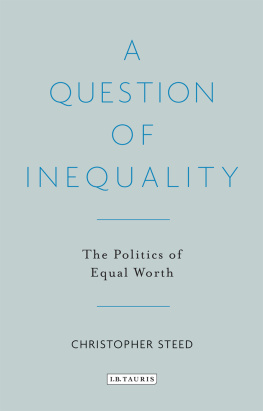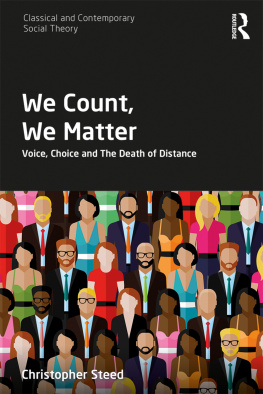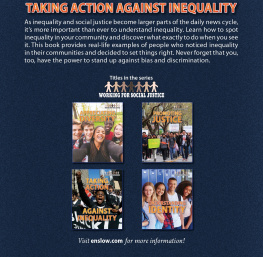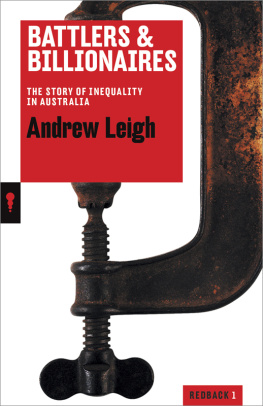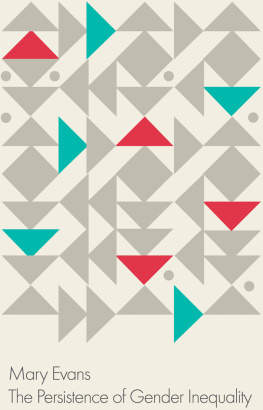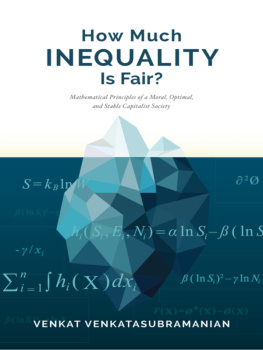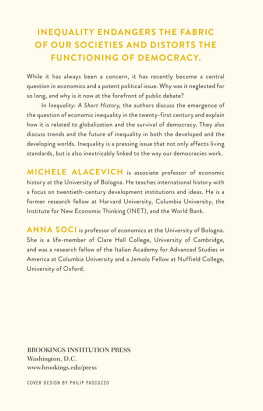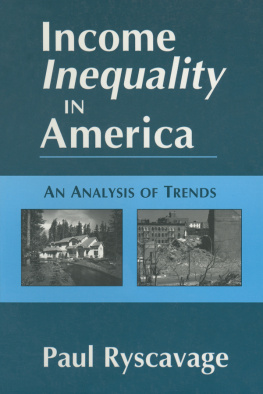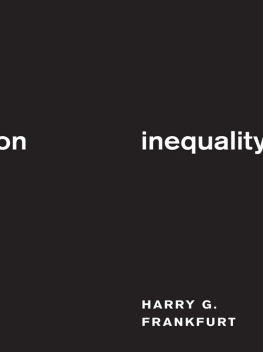Christopher Steed is a Research Fellow at Southampton University. He spent twelve years in Whitehall, where he worked on trade policy towards South Africa during the Thatcher years and deindustrialisation. He has twenty years experience as a parish priest and currently works for the Diocese of Winchester. A qualified psychotherapist and counsellor, he holds doctorates in sociology and education from the University of Exeter, and in theology and history from Trinity College, USA. He has worked in education and in senior management roles in not-for-profit organisations. He is the author of A Question of Worth (I.B.Tauris, 2016).
We want to bring a message from the people in the poorest countries in the world to the forum of the most powerful business and political leaders. The message is that rising inequality is dangerous. Its bad for growth and its bad for governance. We see a concentration of wealth capturing power and leaving ordinary people voiceless and their interests uncared for.
Oxfam International
Hath not a Jew eyes? Hath not a Jew hands, organs, dimensions, senses, affections, passions? Fed with the same food, hurt with the same weapons, subject to the same diseases, healed by the same means, warmed and cooled by the same winter and summer as a Christian is? If you prick us, do we not bleed? If you tickle us, do we not laugh? If you poison us, do we not die? And if you wrong us, shall we not revenge?
The Merchant of Venice, Act 3 Scene 1, Shakespeare
Does it really matter that we have more than others? If they worked as hard as me then they too could have what I have.
Anon
History says, dont hope
On this side of the grave.
But then, once in a lifetime
The longed-for tidal wave
Of justice can rise up,
And hope and history rhyme.
The Cure at Troy, Seamus Heaney
Published in 2018 by
I.B.Tauris & Co. Ltd
London New York
www.ibtauris.com
Copyright 2018 Christopher Steed
The right of Christopher Steed to be identified as the author of this work has been asserted by the author in accordance with the Copyright, Designs and Patents Act 1988.
All rights reserved. Except for brief quotations in a review, this book, or any part thereof, may not be reproduced, stored in or introduced into a retrieval system, or transmitted, in any form or by any means, electronic, mechanical, photocopying, recording or otherwise, without the prior written permission of the publisher.
References to websites were correct at the time of writing.
ISBN: 978 1 78831 153 3
eISBN: 978 1 78672 399 4
ePDF: 978 1 78673 399 3
A full CIP record for this book is available from the British Library
A full CIP record is available from the Library of Congress
Library of Congress Catalog Card Number: available
Typeset by Riverside Publishing Solutions, Salisbury, Wiltshire
Paraded across the divides of modern times, inequality is both wide and widening.
In parallel, the very concept of equality is becoming wider. Egalitarianism is a social and political agenda that has varying fortunes on the contemporary scene. Does the embrace of a market society necessarily involve repudiation of cradle to grave, or state interventions to level things up? How should societies respond to pervasive concentrations of power that surges through the very language we use about ethnicity, gender, age and intact bodies? Is the trend towards equal identities leading anywhere should we not just abolish all social categories as oppressive? And what do we do about the obscene disparities of health as well as wealth, among those who live in the same city (let alone the same country)?
What is inequality? When you drill down into it, the term equality is somewhat meaningless. People live such radically different lives. Maybe it is another way of talking about disparities that will inevitably exist in the aggregate, rather than at an individual level, and rather than being a call to arms against social injustice. Does it matter if people in different social locations live different lives and labour under far greater disadvantages? Is equality the ultimate value anyway? This book argues that equal worth, open to debate though it is in philosophical circles, nevertheless functions as a social dynamic, and seeks to show how. However problematic a concept, inequality gets under the skin; it provokes a reaction much to do with our own sense of value and worth.
The experience of living with racism is well documented in an unlikely context; that of growing up black in white Australia. Maxine Benebe Clark documents life in Sydney in the 1980s and 1990s where racism was commonplace. Anything unfamiliar was hidden from view and scorned. All the culture was about white people doing white things. A Cabbage Patch Kids doll given her by her mother evoked being overcome with disappointment. The doll had brown skin and would not carry the same social value in the playground. That epitomises the central message of this book. It is about what happens when the externally conferred social value meets with an internal sense of value and the pattern of role-switching that ensues in such transactions.
Discrimination whether in criminal justice, health care, education or the slog of everyday life dents peoples understanding of themselves and their identities and this is such a huge factor and force today. An overwhelming sense of powerlessness often flows from stereotypes. Being given to understand that you are no good in the classroom and have few prospects in the workplace erodes self-value.
That will be the journey of exploration in this book. Inequality matters precisely because it gets under the skin. Discussion about social anxiety and status syndrome become core issues, not just because of what people experience relative to everyone else but because they dig into the role that our own sense of value and worth plays in human action. How do people build a good life filled with meaning and feel they are worthwhile when, for some, the odds are stacked so heavily against them? How does a young Dalit man do that if his job is to scrape human excrement and clean toilets with his bare hands?
For many, money is the goal of a good life but the flashy confident have opportunities denied others. Or some will not progress very far and be disadvantaged due to the constraints of parental background. People will never be at the same starting point and while the message of aspiration is vital to make a break from imposed limitations the ideal of be who you are rings hollow. The world over, lives are constrained. Inequality is detrimental and often lethal because, instead of limits coming from inside, someone else gets to define the limits within which life must be lived. As we will explore, refusal to be bound by the definitions of others is the essence of the Protest I am me!
This is the lure, the demand, but also the challenge of equal identities. Perhaps now it is stagnant living standards for the broad middle of society and accumulation of unusable wealth by the rich that has pushed fairness up the agenda. demonstrated the interest in this.
The world is changing more quickly than anyone can keep up with. From one breathless headline to the next, we are seeing faster and more disruptive change of global consequence than ever before. Unevenly spread global wealth is a pressing issue. Many social rifts are closing; fresh ones are opening up. On the whole, inequality is rising and wealth more concentrated than ever. The simplest way of measuring income inequality, Gini coefficients, have risen everywhere. The top one per cent has increased their share of the pie dramatically. Oxfam reported that the top one per cent has more than 50 per cent of total global wealth. Just eight men own the same wealth as half the world. One of the six co-chairs at the 2017 World Economic Forum said the increased concentration of wealth seen since the deep recession of 20089 was dangerous and needed to be reversed.

